TASPAHR Connection




• Employee Harassment, Conflicts & Related Issues
• Understanding Unconscious Bias in HR Recruitment
• Navigating the Grievance Process
• Examining Personnel Issues
Red Rover builds best-in-class software solutions for mission critical tasks in school workforce management. Join 1,500+ school districts in the Red Rover revolution today.
Chandelle Crane, Executive Director
Jeannie Tomasek, Director of Programs & Membership
Kathy Cervantez, Director of Communications & Professional Development
Kimberly Rich, President, Dickinson ISD
Johjania Najera, President Elect, Keller ISD
Chris Bailey, First Vice President, Abilene ISD
Craig Lahrman, Second Vice President, Ysleta ISD
Ben Muir, Secretary, Northside ISD
Al Rodriguez, Immediate Past President, Elgin ISD
Anthony Kosub, District I, Pleasanton ISD
Dr. Tyrone Sylvester, District II, Harris County Department of Public Education
Dr. Tamey Williams-Hill, District III, Manor ISD
Theresa Burkhalter, District IV, Waxahachie ISD
Rodney Caddell, District V, Levelland ISD
Jose Barraza, District VI, Canutillo ISD
Bonnie Herron, District I, Schertz-Cibolo-Universal City ISD
Brian Kroeger, District II, Splendora ISD
Bob Mabry, District III, Jarrell ISD
Jason Liewehr, District IV, Denton ISD
Heath Simpson, District V, Frenship ISD
Bobbi Russell-Garcia, District VI, Ysleta ISD
Dariel Ramirez, District I, United ISD
Barbara Ponder, District II, Barbers Hill ISD
Amelie Sanchez, District III, Round Rock ISD
Greg Gaston, District IV, Carrollton-Farmers Branch ISD
Paul Kimbrough, District V, Canyon ISD
Christopher Smith, District VI, El Paso ISD
Rita Uresti, District I, South San Antonio ISD
Marcus Higgs, District II, Texas City ISD
Lindsey Gonzalez, District III, Del Valle ISD
Asheley Brown, District IV, Little Elm ISD
Paige Anderson, District V, Amarillo ISD
Celina Stiles, District VI, Socorro ISD
**Includes President, President-Elect & District Representatives
Diana Silvas, District I, Robstown ISD
Dr. Nkrumah Dixon, District II, Huntsville ISD
Eddie Curran, District III, Round Rock ISD
TBD, District IV
David Manchee, District V, Amarillo ISD
Fernando Garnica, District VI, Anthony ISD
Lissa Frausto, District I, South Texas ISD
Shay Sicinski, District II, Bryan ISD
Ronnita Carridine, District III, Waco ISD
Danielle Copeland, District IV, Malakoff ISD
Robin Fawcett, District V, Ector County ISD
Jiovana Gutierrez, District VI, Ysleta ISD

KIMBERLY RICH
2024 TASPA PRESIDENT
Dear TASPA Community,
As we move into November, I wanted to take a moment to reflect on what has been an incredibly busy and exciting fall season for our organization. Our calendar has been filled with exceptional professional development opportunities that have enriched our HR community at both state and national levels.
TASPA FALL SUPPORT CONFERENCE SUCCESS

The TASPA Fall Support Conference, held October 6-8, proved an outstanding success. We were exceptionally fortunate to have Marilyn Cook, Senior Director of Educator Preparation and Certification, deliver an informative general session that provided crucial updates on certification requirements, testing changes, and new SBEC policies. Among our breakout sessions, several standout presentations captured the attention of our attendees, including Morgan Beam’s session on “Avoiding Unintentional Discrimination in the Hiring Process,” the “HR and Payroll Relationship Building” session by Ashley Broughton and Lauren Wurman, and Tiffany Duncan’s presentation on “The Seven Habits of Highly Effective HR Staff.”
AASPA NATIONAL CONFERENCE INSIGHTS
The momentum continued as many of our members attended the AASPA National Conference in Seattle
(October 15-18). We were privileged to hear from exceptional keynote speakers, including Theresa Fesinstine, founder of peoplepower.ai, who shared her expertise on the intersection of HR and AI,

helping us understand how to leverage artificial intelligence in our HR practices. Manley Feinberg II delivered an inspiring message about reaching new summits in leadership, drawing from his experience in taking Build-A-Bear Workshop from 42 stores to 425 worldwide. His emphasis on developing “Exponential Commitment” and “Breakthrough Momentum” resonated deeply with members. The conference provided invaluable opportunities to forge new connections and strengthen relationships with colleagues nationwide.
Our commitment to regional professional development was exemplified at the Gulf Coast ASPA (GCASPA) meeting hosted by Harris County

Department of Education on November 1st. The event demonstrated the power of local collaboration and professional networking. HCDE Superintendent James Colbert delivered an inspiring welcome address, emphasizing the critical role HR leaders play in shaping student success through effective staffing and personnel management. We were particularly grateful for our Executive Director’s participation, which reinforced TASPA’s dedication to supporting regional initiatives.
The highlight of the meeting was Kate Kuhlmann’s presentation from HillCo Partners, which provided a comprehensive preview of the upcoming legislative session and its potential impact on education HR. The day was made possible through the generous support of iteachTEXAS/Passage Prep and Proximity Learning/ESS, which sponsored breakfast and lunch, respectively, allowing attendees to focus fully on professional development and networking opportunities.
TASPA continues to offer robust workshops designed to meet the diverse needs of HR professionals across Texas.
Our upcoming professional development calendar includes several valuable learning opportunities:
• The Professional Human Capital Leaders in Education Cohort, scheduled for December 11-12 at The Worthington Renaissance Hotel, offers an intensive blend of in-person and self-paced online learning to enhance strategic HR management skills.
• Our Understanding Special Education HOUSSE workshop at Hutto ISD on November 18 will provide essential guidance on Special Education certification requirements and upcoming changes to Chapter 231, Subchapter F.
• Looking ahead to 2025, TASPA is offering Certification Fundamentals and Fingerprinting/Do Not Hire Registry Overview workshops, ensuring our members stay current with regulatory requirements and best practices.
These workshops, led by our experienced TASPA staff and consultants, offer practical, hands-on training that directly
addresses the challenges faced by HR professionals in educational settings.
None of these successful events would have been possible without the generous support of our sponsors, partnering attorneys, and vendors. Their commitment to education and HR excellence continues to enhance our professional development offerings and strengthen our community.
I am excited about our organization’s continued growth and development as we look ahead. The engagement and enthusiasm demonstrated at these events reflect our members’ dedication to excellence in education HR practice.
Thank you all for your continued support and participation in TASPA. Together, we are building stronger HR departments and better serving the educators and staff who make Texas public education possible.
Warm regards,
Kimberly Rich President, TASPA
Kimberly Rich is the 2024 TASPA President. She is the Executive Director for Human Resources in Dickinson ISD.

Is Your District Ready for the Proposed Changes to the Special Education Assignment Rules?
Join us for: Understanding Special Education HOUSSE Led by: Kathy Cervantez, Director of Communications & PD
THIS WORKSHOP WILL HELP YOU:
Understand the Texas Administrative Code (TAC) & Chapter 231 Special Education certification requirements.
Assess your teachers’ qualifications against the Special Education HOUSSE standards.
Complete HOUSSE forms to determine teacher eligibility for special education assignments.
Stay up-to-date on proposed changes to Special Education Assignment rules and review the Proposed Texas Content Competency Worksheet for Special Education Teachers.
Hands-on Activities: Complete HOUSSE forms and assess teacher eligibility.
In-depth Training: Explore the TAC, Chapter 231, rules and qualifications for unqualified teachers.
Q&A Session: Bring your district-specific scenarios or questions!
To Schedule a Workshop please contact: jtomasek@taspa.org
For more information and updates, please visit our website at taspa.org or call 512-494-9353.
November 18, 2024 Understanding Special Education HOUSSE
November 19, 2024
Webinar: Strengthening Texas Schools: Insights from New Research and Strategies to Support and Retain Teachers
December 11-12, 2024 pHCLE Training
December 11, 2024 Personnel Law Conference
December 11-13, 2024
January 14, 2025
February 11, 2025
February 17, 2025
Webinar: The Pregnant Workers Fairness Act
Fundamentals
Fundamentals
February 17, 2025 Understanding Special Education HOUSSE
February 25, 2025 Fingerprinting & Do Not Hire Registry Overview
February 26, 2025
March 5, 2025
April 23, 2025
May 7, 2025
Webinar: They Used the Magic Word –Discrimination – So What Now?
ISD
via Zoom
The Worthington Renaissance Hotel | Fort Worth, TX
The Worthington Renaissance Hotel | Fort Worth, TX
The Worthington Renaissance Hotel | Fort Worth, TX
via Zoom
ISD
ISD (Tyler)
Hill ISD (Tyler)
ISD
via Zoom
Webinar: It’s Go Time! How to Ensure You Properly Carry Out Chapter 21 Contract Decisions Virtual via Zoom
Webinar: First Amendment Freedoms & Boundaries: Navigating Speech Rights in and Out of the Classroom Virtual via Zoom
Webinar: All Dogs Go to…Work? Service Animals in the Workplace Virtual via Zoom
District I
(ESCs 1, 2, 20)
Anthony Kosub SAAPA
District II (ESCs 4, 5, 6)
Dr. Tyrone Sylvester GCASPA
District III
(ESCs 3, 12, 13)
Dr. Tamey Williams-Hill CTASPA
District IV
(ESC’s 7, 8, 10, 11)
Theresa Burkhalter NCTASPA
District V
(ESC’s 9, 14, 16, 17)
Rodney Caddell WTASPA
District VI
(ESC’s 15, 18, 19)
Jose Barraza PAR 19
November 2024 TBD
February 2025 TBD
January 14, 2025
February 11, 2025
May 13, 2025
December 6, 2024
January 24, 2025
February 2025
March 28, 2025
May 2, 2025
February 19, 2025
November 14, 2024
December 18, 2024
January 17, 2025
February 20, 2025
March 27, 2025
April 24, 2025
May 2025 (TBD)
June 19, 2025
Mesquite ISD
Region 11
Zoom
Cedar Hill ISD
Greenville ISD
Lubbock ISD
El Paso ISD
Ysletta ISD
San Elizario ISD
Clint ISD
Socorro ISD
Fabens ISD For more information and updates, please
Region 19 ESC
TBD

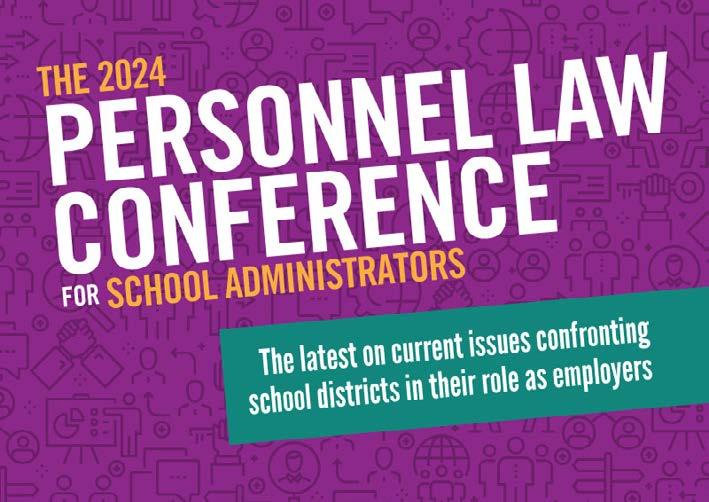


“I chose Teachers of Tomorrow, because it is an excellent programself-paced and affordable.”
Tracee B. Teachers of Tomorrow Alumnus Teacher of the Year Winner
“The Learning Liaisons helped so much with testing strategies and ways to feel confident when taking my exam.
Thank you, TLL!!”
Melissa H. The Learning Liaisons User


“SimpleK12 had a lot of good content that addressed [our diverse] needs. So we used it not only to teach inexperienced teachers but even the older teachers who needed more support. So it just worked for us.”
Laurel T. School Improvement Specialist



Katia Akins
Benefits & Billing Specialist Irving ISD
Julia Anderson
District Receptionist Elgin ISD
Diana Aragon
Executive Assistant Judson ISD
Dr. Kerry Armstead
Executive Director of Special Education Judson ISD
Isabel Balderas
Position Management Specialist Elgin ISD
Shelby Balser
Asst. Supt./Human Resources & Admin Kerrville ISD
Carlette Brignac-McGee
HR Benefits and Leave Specialist Lancaster ISD
Dr. Michelle Brinkman
Executive Director of Human Capital Grand Prairie ISD
Charity Bronson
Position Control Specialist Judson ISD
Kim Brown
DSB Receptionist HR Weatherford ISD
Selina Castaneda
Human Resources Coordinator Robstown ISD
Eduardo Conde
Recruitment Coordinator Lancaster ISD
Jennifer Coward
Director of Administrative Services Crandall ISD
Tiffany Danhof
Human Resources Specialist Schertz-Cibolo-Universal City ISD
Dr. Larry Davis
Director of Human Capital Management DeSoto ISD
Brenda De Leon
Director of Compensation, HRIS Operations & Strategic Staffing Irving ISD
(August 1 - November 5)
Kimberly DeLeon
Secretary Lubbock ISD
Melanie Dobney Director, HR Staffing & Employee Relations Cypress Fairbanks ISD
Ashley Ebner
HR Analyst Humble ISD
Stephanie Elliott HRIS Systems Specialist Manor ISD
Milton Fields Superintendent Judson ISD
Rolanda Fields-Jackson Coordinator, Compensation and Position Control DeSoto ISD
Veronica Flores Secretary Lubbock ISD
Rhianna Gallow HR Clerk Alief ISD
Dr. Dimitri Garcia
Executive Director of Human Capital Pecos-Barstow-Toyah ISD
Azucena Garza Director for Human Resources Sharyland ISD
Jessica Garza
HR Specialist Pflugerville ISD
Senaida Garza
Human Resources Coordinator Lyford CISD
Stacie Golden Director of Strategic Staffing Copperas Cove ISD
Kristin Hyre
Admin. Asst. to the Superintendent of HR Hurst-Euless-Bedford ISD
Elizabeth Jackson
Human Resources Coordinator Lancaster ISD
Monica Juarez
Director of Human Resources Goose Creek CISD
RaShaun Julks
Human Resources Records Manager Fort Bend ISD
Dr. David Kauffman
Asst. Supt. of HR & School Leadership Navarro ISD
Christopher Kocurek
Human Resources Director Sweeny ISD
Megan Koltermann
Executive Secretary Human Resources Schertz-Cibolo-Universal City ISD
Maricruz Lopez
Customer Service Representative Austin ISD
Sarah Lopez
HR Position Management Specialist Waxahachie ISD
Angel Love
Recruiting & Retention Coordinator Manor ISD
Erika Magallanes
HR Specialist Hallsville ISD
Guadalupe Martinez
Systems Operator Judson ISD
Maricela Medina
Executive Assistant for Human Resources Robstown ISD
Dr. Jessi Milam
Superintendent San Vicente ISD
Shayna Molinar
Risk Management Coordinator Manor ISD
Petra Montes
HR Specialist Maintenance Amarillo ISD
Tawynna Moore-Bell
HR Data Specialist Manor ISD
Brad Moughon
Assistant Superintendent Sulphur Springs ISD
Dr. Stephanie Moye
Director of Personnel Services Dayton ISD
Paige Moyer
Director, Human Resources Fort Bend ISD
Patricia Nichols
Human Resource Director
George Gervin Academy
Brian Nickel
Assistant Superintendent for Administration Carroll ISD
Dr. Tina Nixon
Director of Human Resources Systems Duncanville ISD
Olivia Phillips
Executive Secretary Lubbock ISD
Dr. Larry Polk Superintendent Colorado ISD
Adam Portillo Director of Human Resources Midland ISD
Carlos Ramirez
Human Resources Director San Felipe-Del Rio CISD
Adrian Ramirez Chief of Staff Southwest ISD
Lisa Ray General Counsel Garland ISD
Madison Ray
Staffing Manager Spring Branch ISD
Ximena Rebollar
Human Resources Specialist Elgin ISD
Margarita Rebollar Cervantes
Customer Service Rep Austin ISD
Shelia Redmon Jones
CTE Coordinator Spring ISD
TJ Reed
Executive Director of Personnel Services Mesquite ISD
Kelly Reifenberg
Human Resources Project Coordinator Schertz-Cibolo-Universal City ISD
Dr. Tricia Reilly
Director, HR Staffing & Employee Relations Cypress Fairbanks ISD
Patricia Reyes
Executive Assistant Manor ISD
Julia Rincon
Human Resources Specialist Raymondville ISD
Dr. Erica Seastrunk
Executive HR Director Port Arthur ISD
Lakeashia Smith
Administrative Assistant Lancaster ISD
Cathy Smith
HR Secretary Jacksonville ISD
Ellie Stolich
Accounting Specialist Hr/Finance Crosby ISD
Cristina Suarez
Human Resources Specialist Hays CISD
Heidy Then-Cortes Assistant Director - SNS Personnel Carrollton-Farmers Branch ISD
Joel Trevino
Chief Human Resources Officer Seguin ISD
Jennifer Vest
Director, HR Staffing & Employee Relations Cypress Fairbanks ISD
Rob Waller
Director of Human Resources Red Oak ISD
Emely Wiley
Human Resources Specialist Schertz-Cibolo-Universal City ISD
Christina Williams Human Resources Auxiliary Specialist Pflugerville ISD




Kate Kuhlmann HillCo Partners
The 2024 General Election has ended, and Republicans continue their reign in Texas with big wins from the Presidential election to down ballot races. After legislative retirements, a contentious primary season, and, most recently, an election that bolstered Republican control, the 89th Texas Legislature is largely set.
Republicans picked up seats in both chambers in the General Election. Voters in South Texas Senate District 27 unseated Senator Morgan LaMantia who won the seat two years ago by just 659 votes. Instead, voters chose her 2022 opponent Adam Hinojosa, an entrepreneur from Corpus Christi, who will be the first Republican elected to the Texas
Senate from the Rio Grande Valley since 1874. This time, Hinojosa won the seat by almost 3,000 votes.
The Senate seat represents a wave of success in South Texas for Republicans, where President Trump won 14 out of the 18 counties on or very near the border. That is double his 2020 performance in the same region. With the additional South Texas seat pick up, the Texas Senate will now consist of 20 Republicans and 11 Democrats.
In the Texas House, Republicans also picked up two South Texas seats previously held by Democrats. The House District 34 Corpus Christi seat left vacant by retiring Rep. Abel Herrero, a Democrat from Robstown, was won by Republican Denise Villalobos. She beat her Democratic opponent by almost ten percentage points. Meanwhile, the former Republican mayor of Uvalde, Don McLaughlin, beat Democrat Cecilia Castellano in House District 80, an open seat following the retirement of conservative Democrat Rep. Tracy King.
With two new Republicans in the Texas House, the party split goes to 88 Republicans and 62 Democrats (up from 86 Republicans and 64 Democrats in the 88th).
The 89th legislative session will begin on January 14, 2025, with new and familiar faces representing Texans from their respective regions. Between the 71st and 86th Sessions, an average of 30.4 members left the legislature, with a high of 46 leaving after the 82nd session (the last redistricting session in 2011) and only twelve leaving after the 76th session in 1999. The 89th Texas Legislature will sit slightly above average with 35 new members replacing outgoing legislators.
In the Texas Senate, a threemember freshmen class will consist of two Republicans and one already seated Democrat. Republican Brent Hagenbuch, who won the Texas Senate District 30 seat vacated by retiring Sen. Drew Springer (R-Muenster), will join Republican Adam Hinojosa in the freshmen class. Sen. Molly Cook (D-Houston) replaced now
Houston Mayor John Whitmire in both a special and the General Election in Texas Senate District 15.
SD 15 Molly Cook
SD 27 Adam Hinojosa
SD 30 Brent Hagenbuch
HD002 Brent Money
HD006 Daniel Alders
HD011 Joanne Shofner
HD012 Arthur “Trey” Wharton
HD014 Paul Dyson
HD018 Janis Holt
HD026 Matt Morgan
HD029 Jeff Barry
HD030 Andrew “AJ” Louderback
While the chairmen of the Senate and House education committees retained their seats, retirements and the election process impacted many other leadership positions. Committee chairs have been a hot topic in Texas politics, particularly in the Texas House. Alongside grassroot conservatives that made it an election issue in many
A total of 32 new faces will enter the Texas House in January. A full list of new members is below.
HD033 Katrina Pierson
HD034 Denise Villalobos
HD044 Alan Schoolcraft
HD053 Wes Virdell
HD055 Hillary Hickland
HD056 Pat Curry
HD058 Helen Kerwin
HD060 Mike Olcott
HD061 Keresa Richardson
HD062 Shelley Luther
HD064 Andy Hopper
HD065 Mitch Little
areas of the state, some House Republican Caucus members have pushed to remove a long-held practice of appointing Democrats (or the minority party) to a small number of committee chair positions.
The issue of Democratic chairs has also made its way into the race for Speaker, where the a portion of the Republican Caucus has
HD077 Vince Perez
HD080 Don McLaughlin
HD087 Caroline Fairly
HD091 David Lowe
HD097 John McQueeny
HD107 Linda Garcia
HD109 Aicha Davis
HD115 Cassandra Hernandez
HD121 Marc LaHood
HD139 Charlene Ward Johnson
HD146 Lauren Ashley Simmons
One Senate committee, the Senate Committee on Criminal Justice, required the appointment of a new chair when Mayor Whitmire vacated his seat to run for the open Houston mayor seat earlier this year. The top job in the Senate is
retained by Lieutenant Governor Dan Patrick whose current term ends in January 2027 along with the term of Governor Greg Abbott.
Bill pre-filing for the 89th legislative
backed a challenger to Speaker Dade Phelan. Their challenger, Republican Rep. David Cook of Mansfield, has vowed not to assign Democrats to lead any House committees. Regardless of any race for Speaker, the House will see many new faces in committee leadership positions. The following committees are currently chaired by members who are retiring or have lost reelection.
session begins on Tuesday, November 12, 2024. The first day of session is Tuesday, January 14, 2025, and the final day to file bills will be Friday, March 14, 2025. But as indicated above, a lot will unfold in the meantime.
The appointment of a Texas elected official (or officials) to join President Trump in his administration could also shake things up, and with a long list of allies in Texas, President Trump has many options.
He has been a key figure of political support for Attorney General Ken Paxton, saying he would make a good attorney general as recently as this year, endorsing him in his reelection in 2021, and backing him during the 2023 impeachment proceedings. Lt. Gov. Patrick has served as Trump’s Texas campaign chairman, joined him at many campaign events, and obtained his support (or disdain) for many Texas candidates where Patrick has sought to impact an election. Gov. Abbott has also long been seen as a potential running mate and cabinet member in any Trump administration.
And these are just some of the more high-profile Texas elected officials on the list. A shake up caused by Texans heading to Washington also has the potential to impact the 89th legislative session.
Amidst all these known and potential changes, we
have a decent idea of what to expect when it comes to education policy and funding discussions in the 89th legislative session. We know there will be a renewed and significant focus on vouchers that is likely to dominate from the earliest days of the session. That will be discussed along with a push to reduce property taxes. Behind those will be perennial issues like school finance, teacher recruitment and retention, school safety, and state assessments.
Specific to this session, the teacher pipeline issue is expected to narrow in on certification. The commissioner is a strong supporter of intensive training models like residencies and apprenticeships, and there is growing interest in doing something to ensure the increasing number of uncertified teachers in schools, an increase forced by educator shortages, receive training.
The 89th Legislature will culminate on sine die, Monday, June 2, 2025, regardless of what the legislature has or hasn’t accomplished in their 140 days in Austin. What happens next could range from a smooth, quiet interim to a series of special sessions like we saw in 2023.



Experience the difference of a full-service K-12 substitute program that delivers an unmatched level of customer service, innovative resources, and a team that cares about your district, your students, and your community.
Fred Bentsen, Vice President of Business Development FBentsen@ESS.com | 832.244.5015 | ESS.com
Gain access to the best livestreamed certified teachers to fill vacancies quickly and open doors for increased course offerings without needing a full-time instructor. Give your students the gift of a highly-qualified educator.

Annette Rodriguez, Senior Director of Sales ARodriguez01@ProxLearn.com | 512.773.5030 | ProxLearn.com










Gregory Fink Walsh Gallegos Kyle Robinson & Roalson P.C.
Ever heard this from a district employee? “Help! I’m being bullied by a parent” or “This student is harassing me online!” If so, you are not alone. School employees go through a lot these days.
Unlike students, employees do not have special protections from “bullying.” However, this does not mean that an employee’s concerns or complaints regarding their treatment by others should go unaddressed. Depending on the circumstances, the district may have a legal duty to respond to the concerns. As such, when faced with a general complaint that an employee is being bullied or harassed, administrators should obtain specific information regarding the alleged conduct to which the employee is being subjected. Obtaining the specific details will help to determine next
1
2
4
3
steps, including whether certain policies and processes govern review of the matter.
Faced with ever-growing pleas for support, personnel administrators would do well to review fundamental legal protections like Title VII, Title IX, and defamation claims to support district employees as they encounter varying degrees of harassment, conflicts, and other related issues.
Under Title VII, as an employer, a district has an affirmative duty to maintain a working environment free of harassment on the basis of sex, race, color, religion, and national origin.1 Additionally, employees have a right to pursue formal complaints where they believe they have been the subject of sexual harassment as defined by Title IX.2
With respect to conduct between fellow employees, an employer is responsible for acts of harassment
where the employer, its agents, or supervisory employees, knows or should have known of the conduct, unless the employer can show that it took immediate and appropriate action.3 There is a similar, but different, standard for nonemployees. An employer may also be responsible for the harassing acts of non-employees, like parents and students, when the employer knows or should have known of the conduct and fails to take immediate and appropriate corrective action.4
Districts are obligated to protect employees from “hostile work environments” created by other employees or nonemployees. To claim a hostile work environment based on an employee’s membership in a protected class, an affected employee must show they are a member of a protected class (i.e., sex, race, color, religion, or national origin); suffered unwelcome harassment based on their membership in the protected class; the harassment affected a term, condition, or privilege of employment; and the employer knew or should have known about the harassment and failed to take prompt remedial action.
The harassment must also be sufficiently severe or pervasive to alter the conditions of the victim’s employment. In general, district policies provide that prohibited harassment of an employee based on an employee’s race, color, religion, sex, national origin, age, disability, or any other basis prohibited by law, occurs when the conduct is so severe, persistent, or pervasive that the conduct:
1. Unreasonably interferes with the employee’s work performance;
2. Creates an intimidating, threatening, hostile, or offensive work environment; or
3. Adversely affects the employee’s performance, environment, or employment opportunities.
When a legal dispute arises, the district will be judged by what it knew and how it responded. Therefore, district employees who observe or receive a report of harassment should promptly report the conduct to a responsible administrator. Once the district knows of the conduct, the clock starts ticking to look into the matter. All districts have policies in place that speak to the documentation of the allegation and the investigation of allegations. It is critical that school or district officials charged with duties under the policy follow the policy, and if necessary, take appropriate action. If the harassment stops after the district responds to a complaint, a court is more likely to dismiss a hostile work environment claim.5
Takeaway: Obtain details regarding alleged employee harassment, investigate and document.
EMPLOYEES & THE INTERNET: SAFETY CONCERNS & DEFAMATION CLAIMS
Unfortunately, social media helped normalize anonymous aggressive posts and memes, leading some children and parents to weaponize them against school employees. In February 2024, about 20 Pennsylvania teachers were victims of fake social media accounts with pedophilia references, racist memes, homophobia and false accusations of sexual relations, an incident that the New York Times called the first known TikTok attack of its kind by middle schoolers
on their teachers in the United States.6
Online attacks like these can lead school employees to fear for their safety. As leaders of school district personnel, it is important to honor your employees’ safety by establishing internal procedures for reporting and tracking threatening social media posts.
Depending on the degree of harassment, the scenario may demand a public statement to reinforce behavioral expectations and the district’s commitment to maintaining a safe environment. Additionally, depending on the nature of statements posted, circumstances may exist that a district may refuse entry or eject a person from its premises when the person poses a substantial risk of harm to any person or behaves in a manner that is inappropriate for the school setting as provided by Texas Education Code § 37.105.7 Where students are involved, disciplinary action may be taken under the student code of conduct. For example, under Texas Education Code 37.006, removal to the disciplinary alternative educational placement (DAEP) is mandatory for a student who engages in harassment as defined by the Texas Penal Code against a district employee while on or within 300 feet of school property or while attending a school-related activity or off school property.8
As a practical matter, the district may not always be able to address online harassment that originates off-campus. Employees, as individuals, maintain options outside the workplace. Depending on the nature of the harassing conduct and other circumstances, an employee may pursue filing a complaint with local law enforcement or even seeking their own individual legal counsel to obtain information
5 Wantou v. Wal-Mart, Texas, L.L.C., 23 F.4th 422 (5th Cir. 2022).
6 https://www.nytimes.com/2024/07/06/technology/tiktok-fake-teachers-pennsylvania.html
7 Tex. Educ. Code § 37.105.
8 Tex. Educ. Code §37.006(a)(2)(G).
9 WFAA-TV, Inc. v. McLemore, 978 S.W.2d 568, 571, 574 (Tex. 1998).
and pursue civil remedies. For example, an employee may file a defamation claim to respond to online harassment that involves the dissemination or spreading of false information regarding the employee. In Texas, to win a defamation claim, a school employee must prove a person published a statement (e.g., social media comment, blog post, online petition, widespread text, etc.) that was defamatory concerning the employee (meaning false). If the employee meets the legal definition of a public figure (such as board member or a superintendent), the employee must also show that the person acted with actual malice in publishing the false statement.9
Districts should tread carefully when an employee or group of employees requests representation by the district’s legal counsel to combat harassment. Absent the finding of a public purpose, the provision of an attorney to represent employees in these circumstances would constitute a gift of public funds. Talk to the district’s attorney in this situation. However, employees can be encouraged to seek out their own counsel to assist them in analyzing any potential claims they could bring. Clear communication and engagement with the employee may reemphasize that the district is there as support, and not as a potential obstacle in their reclamation process.
Takeaway: Investigate, Act, and Refer.
By knowing which policies apply, actively reviewing complaints, and offering employees helpful resources, personnel administrators can help staff feel valued and protect the district from legal liability.
Filling Texas classrooms at 5:30 a.m.— so you don't have to.

At Kelly Education, we’re passionate about connecting people to meaningful, life-changing work.
As the nation’s largest provider of education talent, we supply and support the people who make learning happen. From substitute teachers and paraeducators to custodians and nurses, we’re the only staffing provider who can fill critical roles across every level of the education continuum with qualified talent.
We’re here to help your district:
• Address the teacher vacancy crisis.
•Recruit, hire, onboard, and manage substitute talent.
•Prevent disruptions to teaching and learning.
•Reduce administrative burden.
•Create cost savings and operational efficiencies.
To learn more, contact: Jessica Grigsby Education Sales Consultant - Texas jessica.grigsby@kellyservices.com 210-347-8696

Dr. Artimese Braddy Lawrence Tyler ISD
In 1930, Mahatma Gandhi profoundly stated, “People’s ability to reach unity in diversity will be the beauty and the test of civilization.” This message resonates deeply with me as I reflect on its relevance to human resources, particularly within the recruitment process. Recruitment plays a pivotal role in shaping an organization’s workforce, yet it is often complicated by unconscious biases. These biases are subtle, involuntary perceptions and attitudes that can, without our awareness, influence hiring decisions. It is crucial to address a common misconception: unconscious bias is not limited
to overtly prejudiced individuals. According to Banaji and Greenwald (2013), these biases are pervasive and can affect everyone, regardless of their conscious beliefs about equality. Understanding and mitigating these biases is essential to creating a fair and inclusive recruitment process.
Throughout history, diverse groups of people have migrated, interacted, and mixed, shaping the societies we live in today. As someone deeply involved in human resources, it was important for me to gain a deeper understanding of how to attract and secure top talent from a wide range of backgrounds and perspectives. In recruitment, identifying unconscious biases
early on is critical. It safeguards that hiring managers and leadership make decisions based on merit rather than comfort. The goal is to mitigate unconscious bias within HR recruitment by developing and implementing strategies that promote a culture of inclusive excellence. At the same time, there must be a commitment to creating and presenting a comprehensive action plan to eliminate unconscious bias throughout the recruitment process.
Let me begin with an example that might sound familiar—a riddle that first appeared on the American television show All in the Family in the 1970s. As you read, I invite you to consider your thought
process: A father and his son are involved in a horrific car crash, and the man dies at the scene. But when the child arrives at the hospital and is rushed into the operating room, the surgeon pulls away and says, “I can’t operate on this boy; he’s my son.” How can this be? It’s the mother. It was such an obvious answer once I’d heard it, yet the puzzle highlights how deeply ingrained assumptions can cloud our judgment. I knew that doctors could be male or female but because of a hidden bias I couldn’t think of the obvious answer. This example serves as a reminder that unconscious biases affect our views on workplace equality. Even if we consciously reject such biases, they can still influence our decisions.
As organizations increasingly strive for an inclusive workforce, the impact of unconscious bias on hiring becomes more apparent. These biases lead to subjective hiring decisions that often favor candidates who are similar to the decision-makers, as noted by Grissom and Redding (2016). This tendency hinders the creation of a truly diverse and inclusive workforce. Recent legislative and administrative actions have compounded these challenges. For instance, several universities across the United States, including institutions in Texas, have seen the scaling back or elimination of Diversity, Equity, and Inclusion (DEI) programs. According to Saul (2024), at least 82 bills opposing DEI in higher education have been filed in more than 20 states since 2023. These developments significantly influence the study of unconscious bias in recruitment and shape the direction of research in this area.
My study aimed to identify unconscious biases in Texas K-12 HR recruitment, assess strategies to reduce unconscious biases, and develop a diversity and inclusion action plan for hiring. Key concepts explored in the research included Unconscious and Implicit Bias, Recruitment, Human Resources, Cultural Origins, and Debiasing Strategies. Studies within Texas have indicated that schools often struggle with retaining minority teachers, further exacerbating initial recruitment biases (Hansen & Quintero, 2019). Through a mixed-method study, it was important to seek and answer the following questions: Are stakeholders providing honest feedback on the state of the organization’s D&I efforts? Is the diverse workforce organically shaping an inclusive culture? What are some common mistakes organizations make regarding D&I? How can HR recruitment practices be adjusted to mitigate unconscious bias?
Current strategies to address unconscious bias in recruitment include Blind Recruitment, Growth and Development Programs, Structured Interviews,
Diversity Training Workshops, and Hiring Tests. However, these solutions alone are not enough. There was a need for a comprehensive action plan tailored to the specific cultural context and goals of the Human Resources departments within Texas school districts. To improve recruitment practices and address unconscious biases, the following action plan included: Surveying for Unconscious Bias—utilize tools to understand individual and organizational biases. Standardized Evaluation Criteria—implement tools to measure the effectiveness of recruitment practices post-implementation. Regular Audits of Resumes and Applications—identify demographic disparities in applicant data. Video Recording and Third-Party Analysis of Interviews—objectively evaluate interview processes and identify biases. Anonymous Role-Playing Exercises—uncover unconscious biases through simulated scenarios. Organization-Wide Unconscious Bias Testing—assess awareness and understanding of biases among employees. Surveying Candidates for Feedback— gather feedback on perceptions of bias during the hiring process.
The study involved a 68-question survey completed by 56 participants from various backgrounds. The key findings highlight a strong commitment to respectful communication within organizations, yet significant biases were identified in application filtering and interview processes. Alarmingly, many HR professionals appear unaware of these biases, underscoring the need for targeted awareness and training initiatives. The findings reveal the importance of proactive measures to enhance awareness, mitigate biases, and promote fair and inclusive practices across all stages of the hiring process. To effectively address these issues, the proposed action plan includes regular audits, video recording, roleplaying exercises, unconscious bias testing, and candidate feedback surveys.
In closing, R. Roosevelt Thomas, Jr. reminds us that “It is not our differences that divide us. It is our inability to recognize, accept, and celebrate those differences.” Similarly, John Lewis once said, “Too many of us still believe our differences define us.”
To truly embrace diversity and inclusion, we must transcend our differences and focus on creating a future where everyone has equal opportunities. Implementing data-driven strategies, engaging stakeholders, and committing to transparency are crucial steps in mitigating unconscious biases. Tailoring diversity practices to the specific context and culture of an organization is key to meaningful progress. As Antonio Guterres said, “We have to transcend our differences to transform our future.”


FOR IMMEDIATE RELEASE
Contact: Lily Coash-Johnson lily@aaspa.org 913.327.1222
American Association of School Personnel Administrators 2024 Awards
OVERLAND PARK, Kan – July 30, 2024 AASPA’s recognition committee convened on June 24th to select the 2024 AASPA award winners The award winners are comprised of three state affiliates, four districts and four individuals
These awards are meant to recognize the extraordinary contributions made by members of the Association, Affiliate organizations, members of a school district to school personnel administration and those outside the Association in the area of school personnel administration Individuals, districts and organizations will be honored and presented with their awards on Thursday, October 17, 2024 during the AASPA Annual Conference in Seattle, WA
Below are the 2024 winners:
● 2024 Arch S Brown Affiliate Excellence Award - CASPA (Connecticut) for Medium Affiliate; IASPA (Illinois) for Large Affiliate
● 2024 C S Robinson District Innovation Award - Rockdale County Public Schools, Conyers, GA
● 2024 Herb Salinger Personnel Administrator of the Year Award - Josh Chambers, Assistant Superintendent for Human Resources, Glenbard District 87, Glen Ellyn, IL
● 2024 Human Resources Digital Branding Development Award - Hillsboro School District, Hillsboro, OR
● 2024 Human Resources Specialist/Support Staff AwardRegion 2: Crissy Cooper, Grayslake Community High School District #127, Grayslake, IL Region 3: Erin Barraza, East Windsor Public Schools, East Windsor, CT
● 2024 Newsletter AwardDistrict: Propel Charter Schools, Pittsburgh, PA Affiliate: TASPA (Texas)
● 2024 Raymond E Curry Impactful Research Award - Angelica Romano, Executive Director of Human Resources, Glenbrook High School District 225, Glenview, IL
● 2024 William L Hunter Diversity, Equity & Inclusion Award - Toledo Public Schools, Toledo, OH
“We were thrilled to hear that our district is being honored with the prestigious C S Robinson District Innovation Award,” Chief Human Resources Officer at Rockdale County Public Schools,


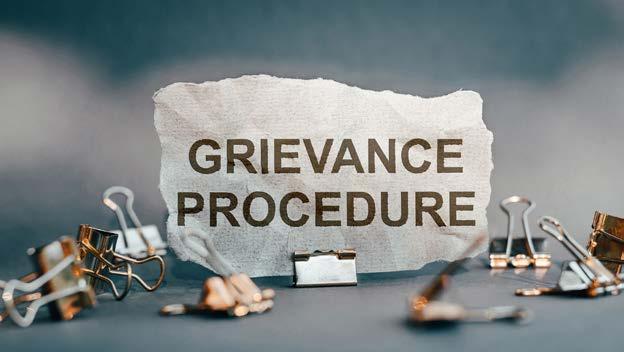
Celena Vinson and Morgan Beam Thompson & Horton LLP
The unequivocal right to file a grievance is as old as our nation itself. The First Amendment to the United States Constitution states:
Congress shall make no law...abridging the freedom of speech, or of the press; or the right of the people peaceably to assemble, and to petition the Government for a redress of grievances.
U.S. CONST. amend. I.
The Texas Constitution follows suit, mandating:
The citizens shall have the right, in a peaceable manner, to assemble together for their common good; and apply to those invested with the powers of government for redress of grievances or other purposes, by petition, address or remonstrance.
TEX. CONST. art. 1, § 27.
The Texas Education Code further directs school districts to maintain specific grievance policies for parents, students, employees, and members of the public. See Tex. Educ. Code §§ 11.171, 11.1511(b)(13), 26.011.11
Because each school district is required to accept formal complaints from an aggrieved party, it is essential that you comply with your district’s grievance process to preserve these rights.
1 Texas Education Code Section 26.011(b) provides that a school board is not required to address a complaint “concerning a student’s participation in an extracurricular activity” unless the complaint involves a violation of a parental right as set forth in Chapter 26 of the Education Code.
Most grievance policies dictate that a grievance be filed to the lowest-level administrator with authority to remedy the complaint. The lowestlevel administrator is often the campus principal or department head. While many grievances are initially filed with the correct administrator, it is sometimes necessary to re-route a grievance to a different administrator. For example, an employee who feels she has been treated unfairly by the campus principal may choose to file the grievance directly with Human Resources; however, if the campus principal can provide clarity and context to the situation—and, potentially remedy the situation (if necessary)—the principal may appropriately serve as the Level One decisionmaker. Starting a grievance process before an improper decisionmaker can produce negative results: an overcomplication of the grievance process; conflicts of interest for potential decisionmakers who would otherwise be involved in the process; and the appearance of impropriety or bias. As such, choosing a Level One decisionmaker requires close examination of the underlying issues and requested remedies. This process often necessitates consultation with the district-level administrative team, legal counsel, or both.
Most policies dictate that a hearing be held within a certain number of business days after the complaint form and/or appeal form is filed. Calendaring all applicable deadlines and promptly scheduling grievance conferences is the first step toward compliance with your policy. While in-person hearings are always preferable, circumstances may dictate that a grievance conference be held virtually, via video conference or telephone call. Whether the hearing be recorded is a local option, but that policy should be applied consistently throughout the district. An employee is legally entitled to have an attorney or other representative participate in a hearing. Most districts provide the same opportunity to a non-employee grievant.
A grievance hearing is a “stop, look, & listen” proceeding. The decisionmaker should specify that witnesses will not be called, nor will the decisionmaker answer factual questions from the grievant or the grievant’s representative. The decisionmaker may, however, ask any clarifying questions of the grievant that will allow the decisionmaker to reach a conclusion on the grievance. At the hearing’s conclusion, the decisionmaker should advise the grievant of when he can expect the written decision and confirm that the decision may be transmitted via email (while confirming the grievant’s preferred email address, if necessary). The decisionmaker should use a script to
keep the hearing organized.
Grievance policies specify when a decisionmaker must issue a written decision on the grievance or appeal. In a Level One written decision, the decisionmaker typically outlines necessary background information and makes requisite findings of fact before communicating a decision on the requested remedies. At Level Two (and Level Three, for those districts that utilize a four-tiered system), the grievance decision should be limited to the issues raised on appeal; it should not typically include further investigation or new findings of fact. At each level, the written decision should contain a clear decision as to the grievant’s requested relief. And once again, at all levels of grievance decisions, it is customary and advisable to consult district-level administrators, legal counsel, or both.
Most grievance policies provide that if a grievant disagrees with the outcome of the Level One decision, the grievant may appeal that decision to Level Two (and beyond) within a specified number of business days after receiving the decision. Appeals typically stem from a grievant’s disagreement with not receiving the requested relief, but occasionally an appeal will attempt to identify a procedural error or other concern. Most grievance policies also provide a right to appeal automatically if a decision is not issued within the requisite time frame. An appellate decisionmaker should be selected with the same level of care as the original decisionmaker. Typically, the appellate decisionmaker is a direct-line supervisor of the original decisionmaker.
Some subject matters are inappropriate for the formal grievance process because those matters require a more specific complaint process. For example, complaints regarding the provision of special education services or educational accommodations must be handled in accordance with appropriate state and federal laws. Furthermore, complaints of discrimination, harassment (including sexual harassment), and retaliation must be addressed under the appropriate policy, which may include a formal Title IX investigation policy. Upon receipt of a formal grievance, check your district’s policies to ensure the grievance is processed according to the issue(s) raised. In other words, the title of the grievance or the identity of the administrator who first received the grievance does not dictate the process.
Of the “other complaints,” allegations of
2
discrimination/harassment/ retaliation against an employee are likely to be misfiled as a grievance under the employee grievance policy. These complaints, when received, should be immediately re-routed for processing under the district’s antidiscrimination policy (for TASB Policy Manual users, Policy DIA (Local)). A discrimination/harassment/ retaliation complaint differs from a grievance in that the process allows for a conclusion as to whether unlawful discriminatory/retaliatory conduct occurred. As a result, the meeting with the complainant is not a “stop, look & listen” hearing but rather a fact-finding interview. Information gathered during the initial interview should help guide the scope of the rest of the investigation. The final investigation report should include relevant findings of fact and a conclusion as to whether the alleged discrimination/harassment/ retaliation occurred. Because the anti-discrimination policy closely aligns with applicable state and federal law, it is highly encouraged to consult with legal counsel upon receiving a complaint alleging discrimination, harassment, or retaliation based on a protected class or activity.
The grievance process is designed to allow campusand district-level administrators to conduct an appropriate investigation and develop a factual record for the school board’s ultimate consideration, if necessary. By the time a grievance reaches the board, no further investigation is conducted, and the board makes its final decision based on the record before it. The board’s role in considering a grievance is to accept the lower-level decision, reject the lowerlevel decision, or modify the lower-level decision. Accordingly, it is imperative that those handling a grievance at the lower levels are familiar with the grievance process as set forth in policy and customary practice. The hearing before the board must be recorded by audio recording or stenographer. It is highly encouraged that you consult with legal counsel upon receipt of a grievance appeal at the board level.
The grievance procedures set out in the Texas Education Code and your district’s board policies are designed to ensure that students, parents, and employees have a fair and equitable process for resolving disputes. Failure to adhere to these established grievance procedures can have significant consequences for all parties involved, impacting not only the individuals directly affected but also the broader educational environment. While the legal ramifications are vast, the “hidden” effects can be even further reaching.
One of the primary, and likely unintended, consequences of ignoring a grievance or complaint is the potential violation of rights, whether those rights belong to a student, parent, employee, or member of the public. The grievance procedures set out in the Code are designed to protect students and staff from discrimination, harassment, and other forms of unfair treatment. When grievances are not formally addressed, mistreatment persists, causing even greater harm to the individual(s) involved.
The grievance process is the district’s opportunity to address complaints before they become costly and time-consuming legal matters. An unhappy grievant has many options when he believes a complaint was not appropriately addressed. A grievant may appeal to the Commissioner of Education pursuant to Texas Education Code § 7.057 if the board’s decision on the grievance violates a school law of the state.2 Like the board, the Commissioner sits in an appellate role and is limited to the record of the grievance proceedings at the district level. The Commissioner may uphold the board’s decision or overturn the board’s decision and remand the grievance for further proceedings. The district will likely need to involve legal counsel in any appeal to the Commissioner for an evaluation of legal issues such as jurisdiction, mootness, statute of limitations, and more.
Failure to comply with the grievance procedures could also result in violations of federal or state laws, such as Title IX or Section 504 of the Rehabilitation Act. Such violations can expose districts to lawsuits, costly legal fees, settlements, and potential damages. Repeated failures to adhere to grievance procedures can also lead to increased scrutiny from other entities such as the Office for Civil Rights and the Texas Education Agency.
One of the most damaging effects of neglecting grievance procedures is the erosion of trust within the school community. When grievances go unaddressed, students and staff may feel that their voices are not valued. This can lead to a culture of silence, where individuals hesitate to speak up about their concerns, fearing that their complaints will fall on deaf ears. Over time, this diminished trust can hinder open communication, making it difficult for schools to identify and resolve issues proactively. Moreover, the erosion of trust can lead to a toxic environment, resulting in decreased engagement and participation from students and staff alike.
Failure to follow grievance policies can also have detrimental effects on staff morale. Teachers and staff members are more likely to feel demoralized and undervalued if they perceive that their concerns are not taken seriously. This can lead to high turnover rates, as educators seek out more supportive environments. The loss of experienced staff can negatively affect student learning and institutional knowledge, creating a cycle of instability that hampers the educational process.
When grievances are not addressed through proper channels, unresolved issues may escalate into larger conflicts. What starts as a minor concern can grow into a significant problem that affects multiple individuals or continues to fester for years. This escalation not only disrupts the learning environment but could also result in more grievances.
Understanding and following your district’s grievance policy is essential to maintaining a safe and supportive environment for students, employees, and the community at large. Failing to follow the grievance policy produces multifaceted and far-reaching consequences. Not only will such failures impact morale of students and employees, but they can cause significant legal problems for the district as well. Ensuring that all grievances are addressed promptly and fairly will protect the rights of students and employees, all while protecting the district.





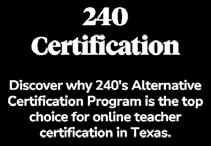


Blended Learning Cohort | December 11-12, 2024

The Blended Cohort prepares participants to become a Certified Professional Human Capital Leader in Education (pHCLE) All learning aligns to the updated pHCLE standards The professional-level standards outline the competencies that leaders in PK-12 and related organizations need to strategically manage human capital processes at the department, team, or individual level
The pHCLE certification is appropriate for anyone who has a stake in improving people practices in education systems, including:
HR department staff
Building leaders Principals, Assistant Principals, Head of Schools
Public, private, and charter school executives including Superintendents, Assistant Superintendents, Chiefs, and Department Directors
School board members
Educator preparation faculty
State departments of education and other education-related government employees
AASPA
Members
Non-members
$300
$550
To become a Certified Professional Human Capital Leader in Education, you must obtain a passing score on the certification exam The pHCLE certification exam, which is managed by AASPA, is an additional cost. Learn more and register for the exam at HCLeader.org.



Blended Learning: 2 days in-person + self-paced online learning with 12 months access


50 hours (certificate of completion provided upon finishing coursework)
None
Cost
$1,200
Includes TASPA Winter Conference participation (conference meals, receptions, after-hours events, and Friday conference sessions)
Scan the QR code
This professional learning opportunity is brought to you in partnership with the Texas Association of School Personnel Administrators.



My name is Holly Stambaugh. I am the Senior Director of Human Resources at Arlington ISD. I have worked in public education in Human Resources and District Leadership for about 10 years. Prior to that I worked in a public sector government position in the role of an Operations and Management Consultant Manager for the State of Florida. I received my bachelor’s degree in human development and Family Studies from Texas Tech University and my Master of Science in Human Resource Development from University of Texas at Tyler. In 2021, I earned my Superintendent Certification through the University of Texas at Tyler. I also have obtained a Registered Texas School Business Administrator (RTSBA) Certification and a Professional Human Capital Leadership in Education (pHLCE) certification.
I am an active member and mentor of Texas Association of School Business Officials (TASBO) and currently serve as the Vice President to the DFW TASBO Affiliate. I have also served on the Professional Certification Committee, Communications Committee, Personnel Subcommittee, and the Leadership subcommittee. In addition to my involvement with TASBO, I am a 2022 RISE Recipient.
Arlington ISD has over 55,000 students and over 9,000 full-time and part-time employees.
While not unique to Arlington ISD, budget shortfalls are a challenge faced by districts across the state. From an HR perspective, these financial constraints make it increasingly difficult to recruit and retain highly qualified staff.
WHAT ARE YOU HOPING THAT TASPA WILL PROVIDE YOU AS
I am looking forward to TASPA providing increased networking opportunities with esteemed HR professionals across Texas. Considering the numerous challenges we face, having a network of contacts and resources statewide will be invaluable for support and collaboration. While we may compete over salaries and benefits, our shared commitment to the well-being of students unites us. Additionally, I hope that my involvement with TASPA will help me stay informed about the latest educational policies and procedures, ensuring that I can effectively navigate any changes that may impact our processes.

ANTHONY KOSUB PLEASANTON ISD

Anthony Kosub has 22 years of experience in education and is the proud Assistant Superintendent at Pleasanton ISD. His career has encompassed roles as a junior high and high school principal, English Language Arts Teacher, and middle school boy’s athletics coach. Anthony is dedicated to supporting education and serves as a Board Member for District 1, where he works to uphold TASPA’s Mission to: “Engage and develop human resource professionals.” Outside of work, Anthony cherishes time with his 11-yearold son, Carson. Now more than ever, we are relying upon our alternative certification programs, university partnerships and staffing agencies to provide us with quality candidates as well as companies to provide support services that allow us to become more efficient with operational tasks so that we can focus our attention on retaining our fantastic employees.
ADVICE TO THOSE NEW TO HR:
Always remember that we are here to serve others. Get a great mentor and support group. Additionally, join TASPA and dedicate yourself to professional growth and learning HR!
Recruiting qualified staff when open vacancies continue to be a challenge. Additionally, giving staff meaningful pay raises with current state funding has been difficult for this school year.

HOW HAS TASPA BENEFITED YOU?
TASPA has provided with incredible mentorship, a strong support system, and meaningful professional development! The TASPA Family is incredible!












Tyler P. Ezell
Eichelbaum Wardell Hansen Powell & Muñoz, P.C.
Texas high school football might seem like all1 touchdowns and triumphs on Friday Night Lights, but behind every storied state championship run lies a tangled web of employment law nightmares. What happens when your coaching job is on the line after a losing streak? Or when your spouse, the principal, faces a hostile work environment because she dared to put education before football? Welcome to Dillon, Texas, where under the bright stadium lights, employment issues like wrongful termination, discrimination, and workplace politics are as much a part of the game as Friday night rivalries.
cast face, from contract disputes to qualified immunity. Let’s dive into the messy, hilarious, and sometimes absurd employment law issues lurking behind those Friday night lights.
MAC MCGILL’S DEROGATORY REMARKS
The Setup: Mac McGill is the Offensive Coordinator for the Dillon Panthers in Friday Night Lights. A long-time figure in Dillon’s football program, Mac is loyal to Head Coach Eric Taylor and deeply invested in the team’s success. However, he is also a controversial character due to a racially insensitive comment he makes in Season 1 during an interview with local news reporters, where he implies that Black players, like star running back Smash Williams, are naturally better suited for certain positions and refers to them as “junkyard dogs.” This sparks a major conflict, leading to protests from Black players and community
members. Though Mac eventually apologizes, the incident highlights his old-fashioned and problematic views, forcing the team to confront issues of racism and discrimination. Despite his flaws, Mac remains part of the coaching staff, but his character serves as a catalyst for discussions about race and accountability in the series.
The Analysis: Coach McGill’s statements raise several issues for discussion. Administrative Leave: District Administration could have justifiably placed Mac on administrative leave pending an investigation into his remarks or to protect the district’s best interests. Instead, the school administration pressured him into delivering a scripted public apology, which ultimately worsened the community’s perception of him. Termination/Nonrenewal: The Commissioner of Education has consistently affirmed that evidence of racially insensitive remarks can support a school board’s decision
In this play-by-play breakdown of Friday Night Lights, we’ll analyze the legal dilemmas that Coach Taylor, Tami, and the rest of the 1 Even though the show’s iconic catchphrase suggests otherwise, you definitely can lose. Consult with your school’s legal counsel before making important decisions impacting the employment of school personnel.
to nonrenew an employee’s contract.2 At a minimum, the Dillon ISD Administration should have considered correcting and documenting Coach McGill’s misconduct through formal disciplinary action, a review of policies, and/or diversity training. This is true whether Coach McGill is on a probationary or term contract, and even if he is uncertified and, thus, employed under a non-Chapter 21 arrangement. Of course, failing to properly address discriminatory behavior by an employee would very likely make matters worse for Dillon ISD. However, the school district should carry out a thorough investigation and keep detailed records of any disruptions to the school environment resulting from Coach McGill’s comments.
The Verdict: Coach Mac McGill intervenes in a crooked police officer’s attempted arrest of Smash Williams on the bus ride home from a playoff game against Dunston Valley. Smash forgives Coach McGill, and everyone seems to forget McGill’s remarks for the remainder of the television series.
The Setup: Throughout his three seasons at Dillon High School, Coach Eric Taylor compiled an impressive record of 33 wins against only 7 losses, showcasing his ability to lead the Panthers to success on the field. Under his guidance, the team clinched a state championship in Season 1 and reached the finals again in Season 3, finishing as the state runner-up, reaffirming Coach Taylor’s prominence as a Texas High School Football Coach.
Despite these remarkable accomplishments, the Dillon ISD Board of Trustees considered taking action against his contract, influenced by a burgeoning campaign to replace Coach Taylor with Wade Aikman—the personal coach of freshman phenom quarterback J.D. McCoy.
The DISD Board of Trustees convened to discuss Coach Taylor’s future employment with the District. During the meeting, Coach Taylor delivered a heartfelt speech expressing his unwavering commitment to the school and his players. Despite his emotional appeal, the Board ultimately offered the head coaching position to the usurper Wade Aikman. In a surprising turn of events, Coach Eric Taylor was quietly reassigned as the Head Football Coach for the newly reopened East Dillon High
School, a move that marked a significant shift in his career and the dynamics of high school football in the community.
The Analysis: Even if we assume that Season 3 marked the conclusion of Coach Taylor’s contract term with the Dillon Independent School District, there was virtually no justification for the Board to terminate or nonrenew his contract. Beyond his impressive coaching record. Taylor established himself as an exemplary employee within the District.
Throughout his tenure, Taylor maintained a spotless record as a District employee, and any attempt by the Board to terminate or nonrenew his contract would have lacked substantial grounds and would have exposed the District to legal consequences. Depending on the language of Coach Taylor’s contract, however, the Board’s reassignment of Taylor to Head Football Coach of the East Dillon Lions might have been proper.
Of course, Chapter 21 contract employees are generally subject to reassignment to another department, position, or campus so long as the reassignment does not result in a change in the employee’s contract or pay and the new position is in “the same professional capacity.”3 We would need to see Taylor’s contract and Dillon ISD’s DK (LOCAL) policy to know for sure, but assignment from a Head Football Coach at one high school to another high school within the District is almost certainly within the “same professional capacity.”
Although this move passes Chapter 21 muster and, until recently, would have provided no fodder for any other type of legal action, things have changed recently. The United States Supreme Court and the Fifth Circuit Court of Appeals have both recently loosened what is required to show an adverse employment action under the antidiscrimination laws. Most recently, the Fifth Circuit affirmed the notion that certain reassignments can be considered adverse employment actions.4 Thus, if Coach Taylor were within a protected class, it would have been wise for DISD to contact legal counsel to determine whether the particular reassignment would be considered adverse, opening up the district to legal exposure.
The Verdict: Coach Eric Taylor accepts his reassignment and eventually leads the East Dillon Lions to a state championship, while Wade Aikman
2 Nairn v. Killeen Indep. Sch. Dist., Tex. Comm’r of Educ. Decision No. 039-R1-0408 (May 20, 2008); Reincke v. Richardson Indep. Sch. Dist., Tex. Comm’r of Educ. Decision No. 063-R1-0607 (July 23, 2007).
3 Lehr v. Ector County Indep. Sch. Dist., Tex. Comm’r of Educ. Decision No. 003-R3-0908 (2008); Perales v. Robstown Indep. Sch. Dist., Tex. Comm’r of Educ.Docket Nos. 053R10-104; 084-R3-604 (2006).
4 Yates v. Spring Indep. Sch. Dist., No. 23-20441, 2024 WL 3928095 (5th Cir. Aug. 26, 2024).
and the West Dillon Panthers are lost to obscurity.
Setup: Jason Street, the senior quarterback for the Dillon Panthers in Season 1, had attracted national attention from some of the country’s top college football programs. However, his promising future was shattered when he sustained a severe spinal cord injury while attempting to tackle an opposing player during the first game of the season, leaving him paralyzed from the waist down. In the wake of this tragedy, Jason’s parents filed a lawsuit against Coach Taylor, alleging that he negligently failed to teach Jason proper tackling technique, and sought damages to cover Jason’s medical expenses related to the injury.
The Analysis: Texas law provides teachers and other professional employees—such as aides, school nurses, and student teachers—with significant immunity from liability for actions taken while performing their duties.5 Typically, an employee is protected from liability as long as they are on duty, exercising their judgment or discretion, and are not using excessive force or acting negligently in disciplining students. It is important to note that Plaintiffs who are precluded by Texas Education Code section 22.051 from bringing a personal injury suit can still sue school employees for acts of misconduct related to their employment provided that the alleged misconduct constitutes a violation of a clearly established constitutional right.6
Under Texas Education Code section 22.0511, Coach
5 Texas Educ. Code § 22.0511(a).
Taylor would likely be immune from liability in the lawsuit filed by Jason Street’s parents. This statute grants broad immunity to school district employees, including coaches, for actions taken within the scope of their duties, provided they exercise professional judgment or discretion. In Jason’s case, his injury occurred during a football game and Coach Taylor’s coaching methodology certainly involves the exercise of professional judgment or discretion. Texas courts have consistently upheld immunity for school employees in cases involving student injuries during school activities.7 Therefore, Coach Taylor likely would have prevailed in this suit.
The Verdict: Jason Street forces his parents to settle the lawsuit against Coach Taylor (almost certainly covered by the District’s insurance carrier), and the parties agree to an undisclosed sum in resolution thereof. The lawsuit is never mentioned again, and Jason joins Coach Taylor’s coaching staff during the very next episode.
In exploring the legal issues surrounding these examples from Friday Night Lights, it becomes evident that the intersection of employment law, community dynamics, and personal conduct can create complex challenges for public school officials. Together, these cases illustrate the necessity for clear policies, transparent governance, and a focus on due process within educational institutions. As schools navigate the intricacies of coaching contracts and community expectations, ensuring fairness and accountability in these processes is essential not only for the well-being of school employees but also for the students and communities they serve.
6 Stem v. Ahearn, 908 F.2d 1, 5 (5th Cir.1990); Anderson v. Creighton, 483 U.S. 635, 640, 107 S.Ct. 3034, 3039, 97 L.Ed.2d 523, 531 (1987) (For a constitutional right to be clearly established, “[t]he contours of the right must be sufficiently clear that a reasonable official would understand that what he is doing violates that right.”).
7 Barr v. Bernhard, 562 S.W.2d 844 (Tex. 1978); Stout v. Grand Prairie Indep. Sch. Dist., 733 S.W.2d 290 (Tex. App.—Dallas 1987, writ ref’d n.r.e.).
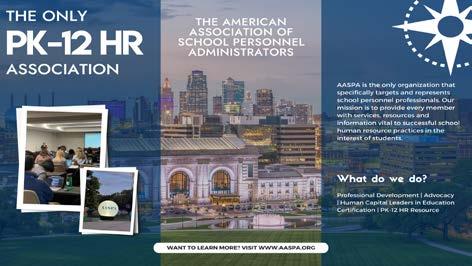

Jordan Elliott, CSBOC, SHRM-CP, PHCLE Chief Operations Officer, Charter School Success
When an employee passes away, it’s crucial for school administration to navigate the situation with both compassion and professionalism. Often, the responsibility for coordination of these activities falls heavily on school HR professionals. This involves offering sincere condolences to the grieving family, colleagues, and students, managing administrative tasks such as updating records and processing final pay with sensitivity, and ensuring that all benefits and entitlements are addressed promptly. School administration should also provide support to the team by facilitating workload transitions and offering access to counseling services. By handling these matters with empathy and respect, the employer not only honors the memory of the deceased but also fosters a supportive and considerate work environment for all employees, students, and families affected by the loss. Here are the key steps and considerations HR should take in navigating the loss of a valued team member:
• Express Condolences: Reach out to the family or loved ones of the deceased with a message
of sympathy. This could be a card, email, or personal communication depending on the relationship and context.
• Inform the Team: Notify colleagues and other employees in a sensitive manner. This could be through a company-wide email or a team meeting, depending on the size and span of the school.
• Inform the Students and Families: Inform students and their families about the change in a professional and respectful manner. Consider sharing a written notice/memorial via the school’s email distribution list and on the school’s website or social media.
• Notify Relevant Authorities: Inform the relevant government agencies and organizations such as Social Security Administration about the employee’s passing. In some cases, it may be necessary to inform the Texas Education Agency (TEA), particularly for matters related to certification.
• Update Company Records: Adjust the employee’s status in HR systems, ensuring that their records are marked appropriately.
• Process Final Pay: Ensure the deceased employee’s final paycheck is issued promptly. This includes any outstanding wages, unused vacation days, or other compensation owed.
• Return Personal Belongings: Pack the employee’s personal belongings with care and arrange to return them to the family.
• Life Insurance: If the employee was enrolled in life insurance, contact the insurance provider to start the claims process.
• Retirement Accounts: Inform TRS of the employee’s passing to begin the process of distributing benefits according to the plan’s provisions.
• Health Benefits: Notify the health insurance provider and discuss the continuation or termination of benefits for the family, if applicable.
• Transition Work: Plan for the redistribution of the deceased employee’s workload. This may involve temporary coverage or hiring a replacement.
• Local Tribute: Decide if the school will hold a memorial service or tribute, either in person or virtually, and ensure it is respectful and considerate of the family’s wishes.
• Formal Bereavement Service: Should the family plan a memorial or funeral, make arrangements for staff to attend while keeping campus open (if the service falls during school hours).
• Consult Legal Counsel: Ensure compliance with all legal requirements regarding the employee’s death, including final pay, benefits, and any other relevant issues.
• Assistance: Offer support to the family in navigating the various processes, such as filing insurance claims or accessing benefits.
• Employee Assistance Program (EAP): If the school has an EAP, inform the family about counseling or support services available.
• Offer Optional Counseling Services: Recognize that the death of a member of your school family can be difficult for employees and for students. Provide support through counseling services or time off if needed. Utilize in-house counselors or community partners offering counseling to students and staff that may be affected to an extent requiring professional support. Consider offering group counseling sessions focused on coping with the loss during or after school in the weeks to follow.
Handling the death of an employee with care and respect not only honors the individual but also supports the well-being of the remaining team, students, and their families.



Have you ever worked in a school with an amazingly positive, supportive culture? The type where relationships are characterized by respect, trust and transparency; where mistakes are seen as opportunities for growth; where individual successes are recognized and celebrated. If you’ve been lucky enough to work in such a place, you know that a positive school culture has a certain magic to it — you can’t see or touch it, but there’s no denying that it’s there, uplifting students and staff alike.
While strategic leadership is vital to cultivating that kind of culture, building and maintaining it involves effort from everyone in the school — including your newest hires. So, it’s crucial that your school’s mission, vision and values are clearly communicated (and actively modeled!) throughout the onboarding process.
Here’s how to do it.
School culture starts with hiring extraordinary staff who believe in the organization’s mission and vision and are closely aligned with the school’s values. This means your first step should be looking at your hiring process and making sure that your culture shines through in job postings and interviews. You want to recruit candidates who believe in your mission, and make sure that you’re hiring the ones who are likely to positively contribute to the school’s culture.
At one school, the HR department and principals came together to determine the qualities possessed by exemplary teachers. They came up with a tagline (“Dedication. Collaboration. Innovation.”) that is now used to guide administrators in hiring candidates who are likely to be a good fit. Now, they’re able to hire educators who are not only qualified for the position but are also closely aligned to the district’s goal of improving student success.
There’s no single set of characteristics that define whether a school’s culture is positive or not. But you know what it is that makes your school a wonderful place to be — and you know your values aren’t just words on a wall.
Take a close look at what you think are the most important qualities that contribute to your school culture and shout them from the rooftops! Are they clearly communicated in job postings? What about in new hires’ welcome packets? This is part of building your district’s brand as an employer and sets the stage for hiring talented “culture carriers.”
Even more importantly, make sure your school’s values are intentionally modeled throughout the hiring and onboarding process. For example, if collaboration is a key part of your culture, don’t let new hires feel isolated. Plan networking activities to welcome new employees into the school’s community and consider setting up more coaching or mentoring programs.
Onboarding and induction should inspire new hires to become enthusiastic stakeholders in the school’s culture, but too often, it’s bogged down by paperwork and process. While the necessary paperwork is crucial to employ someone in the district, it shouldn’t overshadow the real purpose of onboarding: setting employees up for success. By automating paperwork, districts can shift their focus to what really matters—building relationships, answering questions, and welcoming new hires into the community. This human-centered approach allows new employees to truly connect with the school’s culture and feel like valued members of the team.
That’s when you can really show what your school culture is all about.
Ready to learn how you can create an outstanding hiring and onboarding process?
Learn more about Frontline Human Capital Management -->

The TASPA Executive Board and Staff would like to take a moment to sincerely thank each of you for your continued support and dedicated participation in our conferences over the years. Your presence and engagement have been vital to the success of our events, and your commitment to sharing knowledge, fostering connections, and driving meaningful conversations has helped shape our community. We are deeply grateful for the time, effort, and energy you’ve invested in making these gatherings not only possible but impactful. Your enthusiasm and collaboration have been the cornerstone of our progress, and we look forward to many more years of collective learning and growth together.
























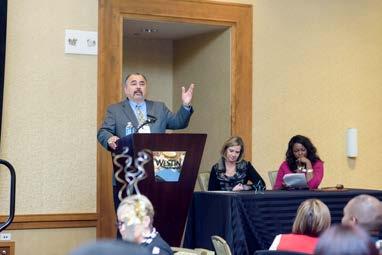





The 2024 TASPA Fall Support Staff Conference was held on October 7-8 at The Worthington Renaissance Hotel in Fort Worth, TX. There were 161 attendees at the conference this year.
During the two-day conference, TASPA hosted four general sessions covering certification, service record maintenance, fingerprinting and customer service. Fifteen breakout sessions covered a variety of topics from speakers representing DPS, TASB HR Services and TASB Risk Management, among others. We also appreciated sessions from Eichelbaum Wardell Hansen Powell & Munoz, P.C., Thompson & Horton LLC, Abernathy, Roeder, Boyd & Hullett, P.C. and Rogers, Morris and Grover, LLP. Many thanks to all the presenters who contributed to the breakout and general sessions at the Fall Conference.
TASPA greatly appreciates the support of our sponsors: Black Diamond Sponsors – ESS/Proximity Learning, Frontline, iteachTEXAS and Red Rover; Diamond Sponsors – EduStaff, Gulf Coast Educators FCU, Kelly Education and Teachers of Tomorrow; Gold Sponsors – The Baldwin Group, PowerSchool and Teachworthy; Silver Sponsors – 240 Certification and 240 Tutoring, and Bronze Sponsors - Paradigm K12 Staffing Software, Public Impact, Skyward and Upbeat.
Thank you to the presenters, facilitators, sponsors, TASPA board members, TASPA staff and TASPA members that helped to make this conference a huge success!
We hope to see you at the Winter Conference at The Worthington in Fort Worth December 11-13!





























Billing reconciliation & remittance
Benefits technology solutions
Benefits design & consulting
In-house legal & compliance support
Benefits education & enrollment



Increase teacher retention by utilizing our research-backed survey
Compare results with similar schools and school districts
On-demand insight to drive teacher engagement


The Upbeat Leadership Coaches have been practitioners, principals, and superintendents; they’ve lived the life on a campus. Our principals and administrators in our district have benefited and built relationships with the coaches and developed action plans from the data, and the success has been evident on our campuses and departments.
—Willie Watson Jr. Chief Human Resource Officer, Pflugerville ISD
*Alief
*Amarillo
*Austin ISD
*Colorado
*Region
*Region
*Region
*Gainesville
*Hutto
*Judson
*Lubbock
*Victoria